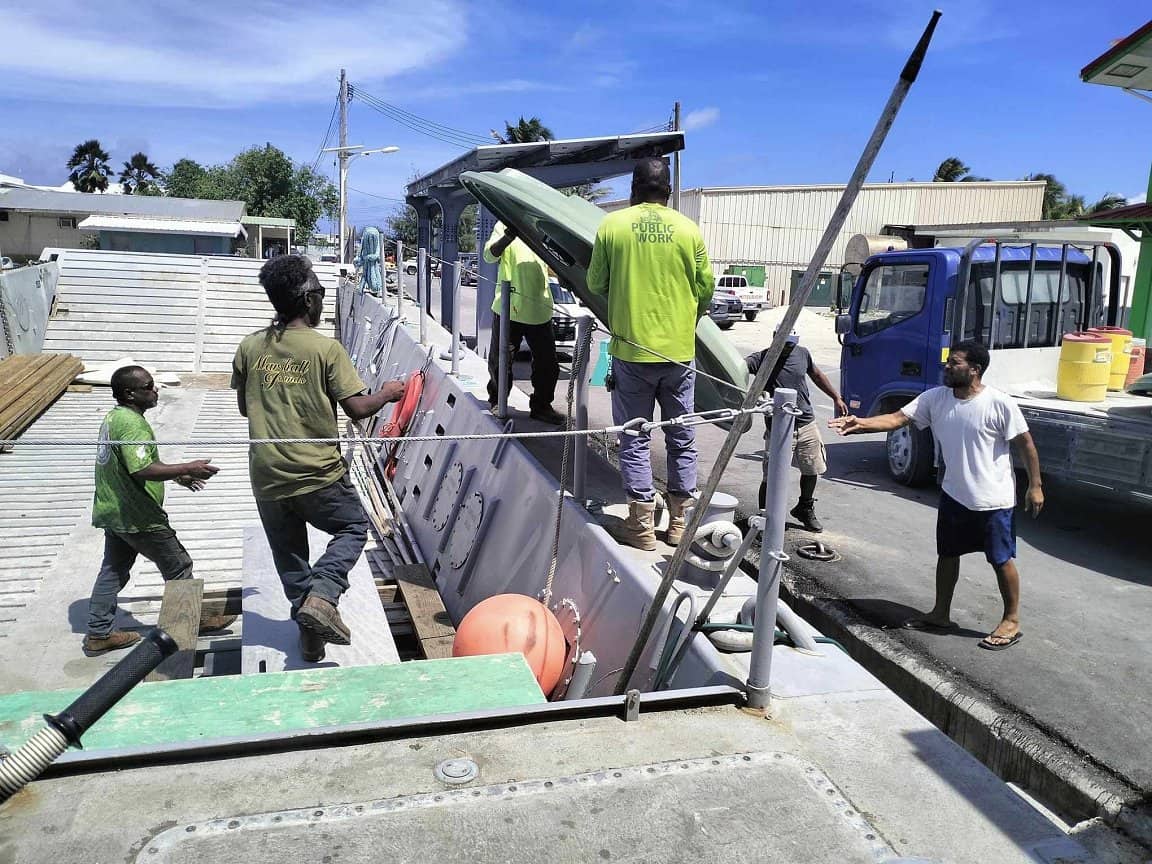A humanitarian operation supported by the IFRC’s Disaster Response Emergency Fund was getting underway late last week in the Marshall Islands, some of whose atolls and islands are said to have had no rain this year.
The DREF grant of just over 200,000 Swiss francs will enable the Marshall Islands Red Cross to assist 5,000 of the nearly 14,000 people affected by the current drought.
“The immediate and paramount need in the affected regions is access to potable and safe water for consumption and domestic use, and ensuring adequate hygiene and sanitation,” the IFRC says.
The DREF allocation will fund access to clean water, including storage solutions, and relevant health education over five months in the islands and atolls of Ailinglaplap, Jabat, Jaliut, Kwajalein, Lae, Lib, Namu, Ujae, Utirik and Wotho.
Assessment meetings last week involving the Red Cross and community leaders revealed that some critical water-supply hardware such as reverse-osmosis equipment was malfunctioning because of power cuts, and as a result some residents were forced to rely on contaminated wells.
The current drought had also prompted migration from smaller atolls to the capital, Majuro, and Ebeye island.
A U.S Drought Monitor report at the end of last month showed worsening drought since January, with “severe drought conditions” in two atolls with two others listed as “abnormally dry”.
The IFRC text adds: “It will take months for aquifer sources to refill, the quality of water to improve, and lost crops that water are dependent to be replanted and harvested.”
The current drought in the Marshall Islands is linked both to climate change and El Niño, which recently peaked but whose impacts – including intensified drought – are likely to continue for the next few months.
Climate Centre science lead Liz Stephens said today: “The Marshall Islands are once again experiencing drought driven by El Niño, after severe drought conditions amid the El Niño in 2015–16.”
“Climate change is increasing the islands’ vulnerability to these El Niño events, with rising sea-levels contaminating the limited groundwater resources.”
The Marshall Islands “is one of the world’s most vulnerable areas to climate change,” according to USAID’s climate change fact sheet for the country, which adds: ”In 2013 and 2016, [the Marshall Islands] declared states of disaster for prolonged and unseasonal drought and required international assistance.”
People in the Marshall Islands drought-affected islet of Ebjedrik late last month receive new water-storage tanks, “a lifeline during droughts,” the local Red Cross said, “ensuring a sustainable water supply for the community”.
The support was made possible by collaboration with the IFRC and USAID, the National Society added.
